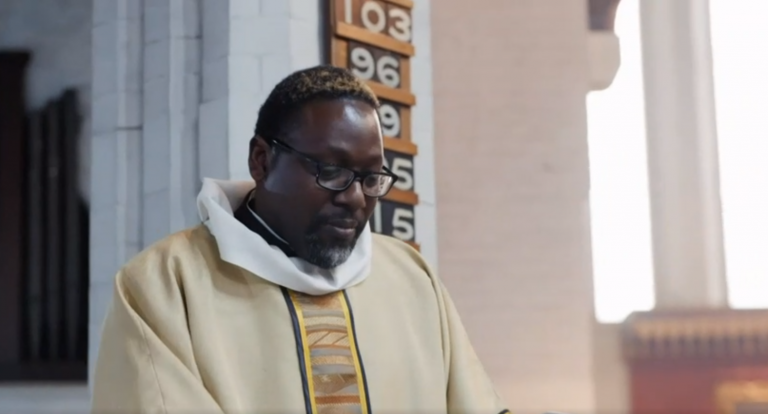A 53-year-old Nigerian priest in the church of England is fighting to marry his partner, also a Nigerian.
As a priest, the Church allows Jide Macaulay to be gay. But an outright marriage to his partner is not permitted. He can live with him in a celibate relationship but cannot get married in the church. He risks losing his job in the Church if he does.
“To me, that is a great disservice and discrimination against same-gender-loving individuals,” Macaulay, also a lawyer, said in a BBC documentary – Too Gay for God?
His partner lives in their birth country where homosexuality is seen as an aberration only deserving of ostracisation or death. The country banned same-sex marriage in 2014, the same year it became legal in Great Britain.
The Same-Sex Marriage Prohibition Act (SSMPA), signed into law in 2014 by former President Goodluck Jonathan, was enacted on the premise that the Nigerian culture is antithetical to homosexuality.
With the population of the country largely divided between Christians and Muslims, there was also a religious urgency to the prohibition.
A poll conducted by The Initiative for Equal Rights (TIERs) via NOI Polls, surveyed 2,000 Nigerians of different demographics show that 90% of the 2000 people surveyed supported the SSMPA.
Initially, Macaulay was not ready to come to terms with his sexuality. After arriving in the United Kingdom at age 20, he joined Celestial Church of Christ. There he concentrated on praying his homosexuality away.
He even got married when he was 24 years old. The marriage only lasted three years with a son to show for it.
“Three years after my marriage, I was having a breakdown,” he said.
Read Also: Gay Rights: Botswana to rule on scrapping anti-gay laws
“So when I told her I’m gay, unfortunately, the separation became acrimonious.”
Macaulay said the Church of England barring him and others from getting married has no basis in the Bible. In fact, he said the Bible verses used to condemn homosexuality were taken out of context and misinterpreted.
Macaulay noted that one of the verses usually used to justify the condemnation, Leviticus 18:22 – “Thou shalt not lie with mankind as with womankind: it is an abomination” – is usually mischaracterised.
“I think people have used this to bash, to abuse and to demonise those who are same-gender-loving,” he said.
“While the Church of England understands marriage to be between a man and a woman…we recognise there are different views, especially given the legalisation of same-sex marriage in this country,” the Church of England said in a statement.
A Church of England bishop, who spoke in a personal capacity in the documentary, said he hoped the church will recognise same-sex marriage one day.
“I very much hope that one day it will be if a life of stability, and love and commitment is good for human flourishing,” Bishop of Buckingham, Rt Reverend Alan Wilson, told Macaulay in the documentary.
“Why would [it] not be good for you because you are gay?”
Macaulay’s fight for acceptance is not only against the Church of England. His father Professor Olakunle Macaulay, himself a clergyman and professor of theology, pushed for a five-year prison term for homosexuals, seven years before SSMPA was signed into law.
Although the younger Macaulay was “shocked” by his father’s stance, he said he still talks to him regularly. But their conversations stay off politics and religion.
“Rowland is a son I respect, he’s an intelligent person,” Professor Macaulay said at a press conference in 2008 after his son’s House of Rainbow, a church for homosexuals, celebrated its second anniversary on the premises of United Bible University.
The university grooms clergymen
“I don’t support what he’s doing. So, there is a difference between loving my son and loving what he’s doing.”
Macaulay is hoping that the Church of England will soften its stance against same-sex unions one day. He understands that a change may not come anytime soon. He said abandoning priesthood is not a choice he’s ready to make. But he is opened to doing that since “there are other ways to serve God.”
“My hope is that, sooner rather than later, the Church will change its position, but I don’t think that any decision that is going to change the course of history is going to be easy,” he said.










